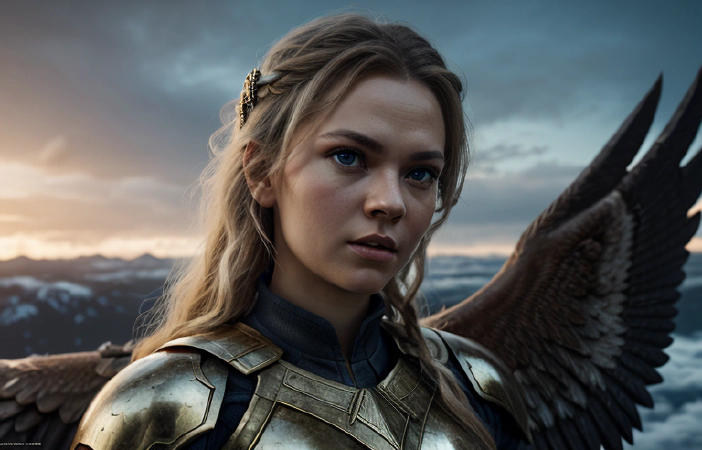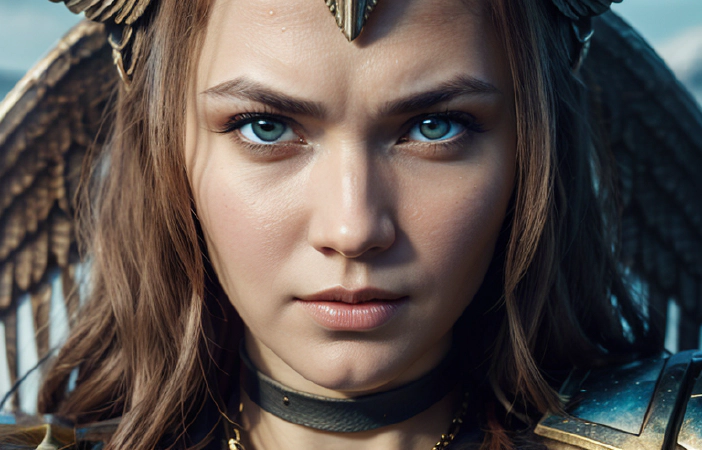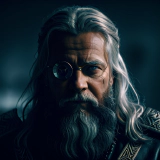
Valkyries: The Fierce Maidens of Battle in Norse Mythology
Welcome, brave souls, to the realm of Norse mythology, where tales of gods, giants, and magical beings come alive.
In this mystical world, one group of warriors stands out amongst the rest - the valkyries. Known for their ferocity and beauty, these fierce maidens of battle play a vital role in the mythology and beliefs of the Norse people.
Join me as we delve into the captivating realm of valkyries and explore their significance in Norse mythology. Uncover their role in the afterlife, their names and unique characteristics, and gain a deeper understanding of these mythical beings who were both feared and revered by all who encountered them. Let us embark on this epic journey together, guided by the wisdom of the gods.
The Role of Valkyries in Norse Mythology
In the rich tapestry of Norse mythology, the valkyries hold a prominent place as powerful and revered figures. These formidable maidens of battle serve as the handmaidens of Odin, the Allfather and ruler of the gods. Tasked with selecting which warriors would die in battle and be taken to Valhalla, they play a crucial role in the divine hierarchy.
The valkyries were not merely passive observers of the battlefield; they actively participated in the chaos and carnage of war. Riding forth on their swift steeds, they would scout the battleground, choosing the bravest and most worthy fallen warriors to become Einherjar – the honored dead who would fight alongside the gods in the final battle of Ragnarok.
The valkyries’ selection process was not arbitrary; it involved careful consideration of a warrior’s prowess, courage, and loyalty. These celestial warriors were responsible for ensuring that the ranks of Valhalla were filled with only the best of the fallen, creating a formidable force ready to stand alongside the gods when the time came.

But their role extended beyond mere selection. Valkyries also possessed formidable battle skills and would join the fray, wielding their weapons with unmatched precision and ferocity. Their presence on the battlefield instilled fear in the hearts of their enemies and provided inspiration and guidance to the warriors they favored.
These fierce maidens of battle were not only warriors but also bearers of fate. They were believed to have the ability to shape the outcome of conflicts, tipping the scales in favor of the side they favored. Their presence on the battlefield was seen as a sign of the gods’ favor or disfavor, influencing the morale and determination of mortal warriors.
It is through their pivotal role as selectors, warriors, and bearers of fate that the valkyries established themselves as some of the most iconic and revered figures in Norse mythology. Their legend and power continue to capture the imaginations of storytellers and enthusiasts alike, reminding us of the enduring fascination with these fierce maidens of battle.
Valkyries and the Afterlife
When it comes to the afterlife in Norse mythology, valkyries play a crucial role in determining the fate of fallen warriors. Chosen by the valkyries, the warriors who displayed extraordinary bravery and skill in battle were granted access to the grand halls of Valhalla, where they would join the ranks of the Einherjar.
Valhalla, the great hall of Odin, was a realm reserved for the honored dead. It was a place where fallen warriors would feast, fight, and prepare for the final battle of Ragnarok. Guided by valkyries, these chosen warriors would enter this glorious realm to bask in eternal glory and the presence of the gods.
But not all warriors were deemed worthy of Valhalla. Those who did not meet the valkyries’ stringent criteria were sent to Fólkvangr, a separate realm presided over by the goddess Freyja. Fólkvangr was equally esteemed, and its warriors would relish in the blissful afterlife, feasting and celebrating in the company of the goddess herself.
The role of valkyries in the afterlife extended beyond being mere guides to Valhalla and Fólkvangr. They were also responsible for tending to the fallen warriors, preparing them for their eternal existence. With great care, valkyries would take the fallen heroes to a sacred place known as the Valkyrie’s Hall, where their wounds would be tended, and they would be prepared for their new life in the realms of the gods.
In the grand tapestry of Norse mythology, the valkyries stood as intermediaries between the mortal realm and the divine, shaping the destiny and afterlife of fallen heroes. Their duty to ferry souls to their eternal rewards showcased their importance and revered status in the mythology.
As we explore the role of valkyries in the afterlife, we gain a deeper understanding of the intricate belief system within Norse mythology. The valkyries’ selection process, their connection to Valhalla and Fólkvangr, and their role in preparing fallen warriors reveal the complex interplay between mortal life and the realms beyond death. It is through this understanding that we can fully appreciate the significance of valkyries as the conduits through which heroes attain their eternal glory.
Valkyrie Names and Characteristics
In the realm of Norse mythology, valkyries possess not only awe-inspiring power but also distinctive names and characteristics that set them apart from other beings. These fierce maidens of battle are known for their beauty, strength, and unwavering loyalty to the gods.
The names given to valkyries often carried significant meaning and reflected their attributes. Common valkyrie names such as Brynhildr, Sigrun, and Gunnr evoked strength, valor, and victory. Each valkyrie’s name was a testament to her role as a warrior and chooser of the slain.
Beyond their names, valkyries possessed a variety of characteristics that made them truly formidable. First and foremost, they were depicted as stunningly beautiful. This beauty, while captivating, was not merely superficial but embodied the divine and ethereal nature of these mythical beings.
In addition to their beauty, valkyries were renowned for their skill in battle. They were fearsome warriors, skilled in both armed and unarmed combat. Their expertise with weapons such as swords, spears, and bows allowed them to effortlessly navigate the chaos of war and strike down their enemies with lethal precision.
Another characteristic that defined valkyries was their profound connection to nature and the spirit world. It was believed that valkyries could communicate with animals, sense the presence of supernatural beings, and possess the ability to shape-shift. These mystical abilities enhanced their role as divine messengers and protectors of the fallen warriors.
Moreover, valkyries exhibited unwavering loyalty to Odin and the gods. Their commitment to their divine duties, their dedication to selecting and preparing fallen warriors, and their willingness to join the fight in battles demonstrated their devotion to the greater cause of fate and destiny.
The names and characteristics of valkyries in Norse mythology provide a glimpse into the captivating world of these fierce maidens of battle. From their powerful names that symbolize their attributes to their unrivaled beauty, skill in combat, affinity for the supernatural, and unyielding loyalty to the gods, valkyries stand as mighty figures synonymous with honor, battle, and the cycle of life and death.
